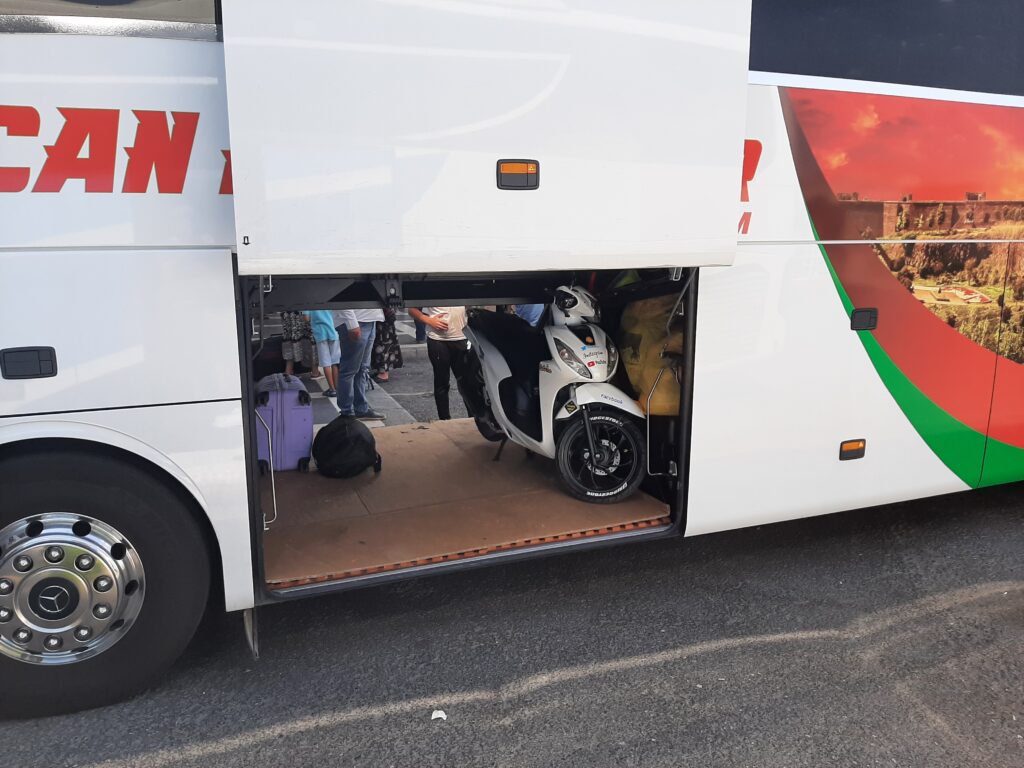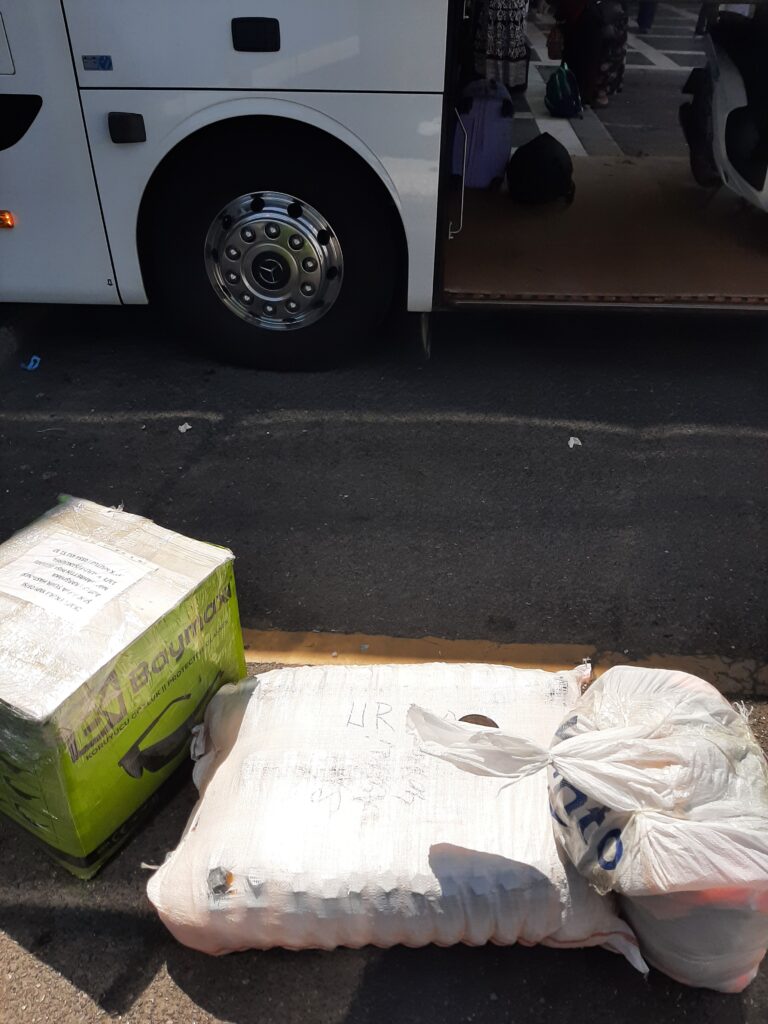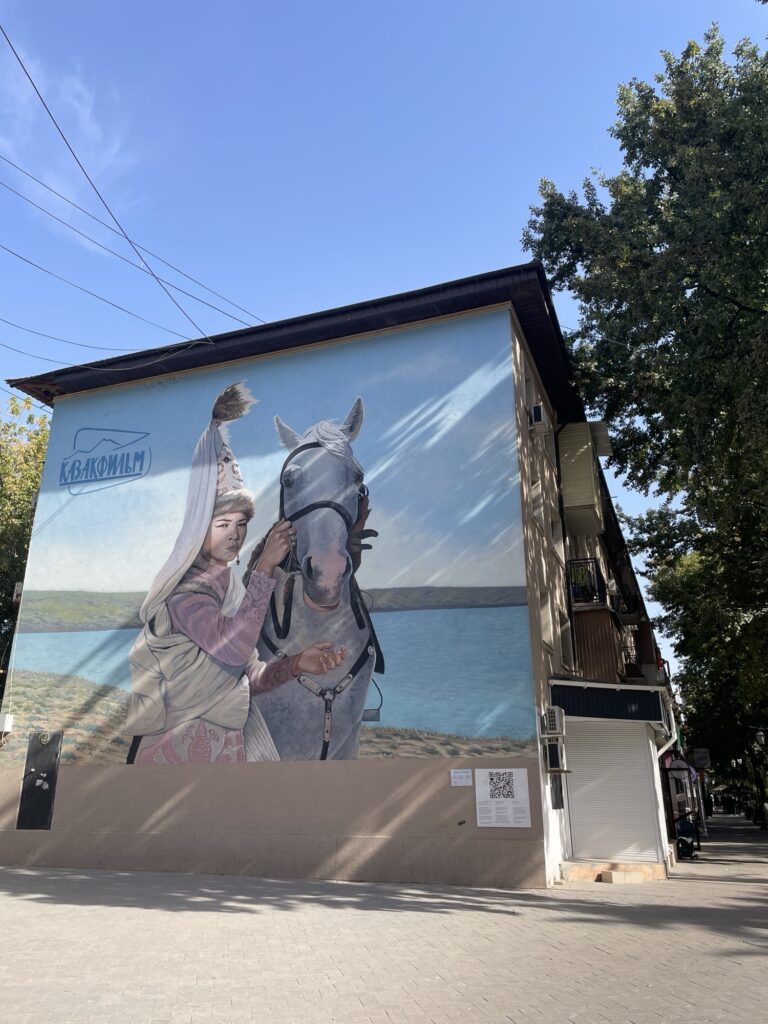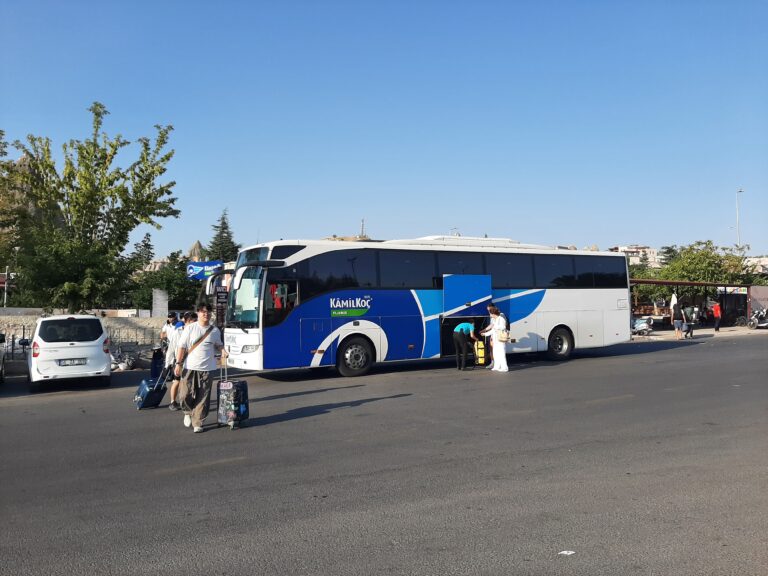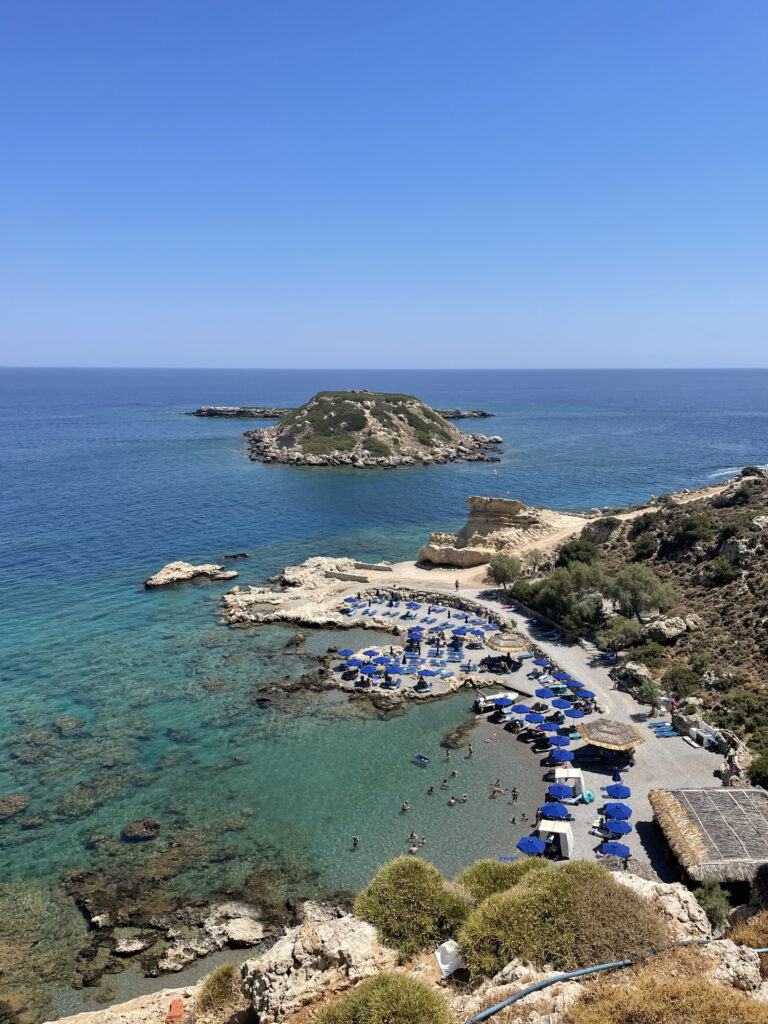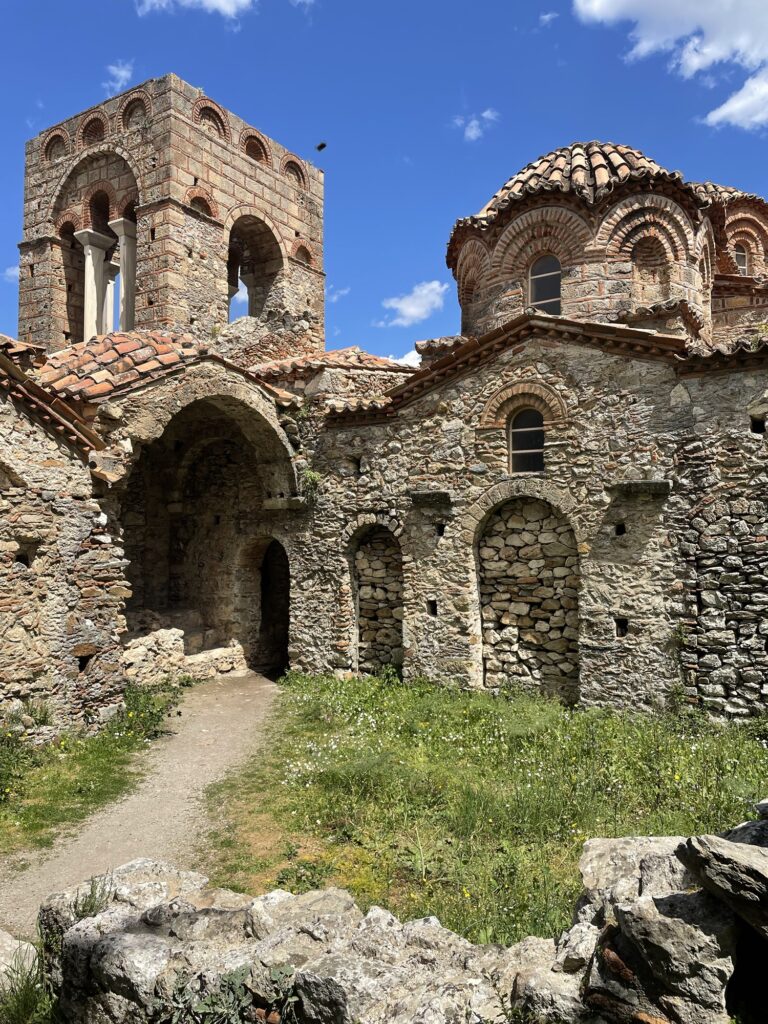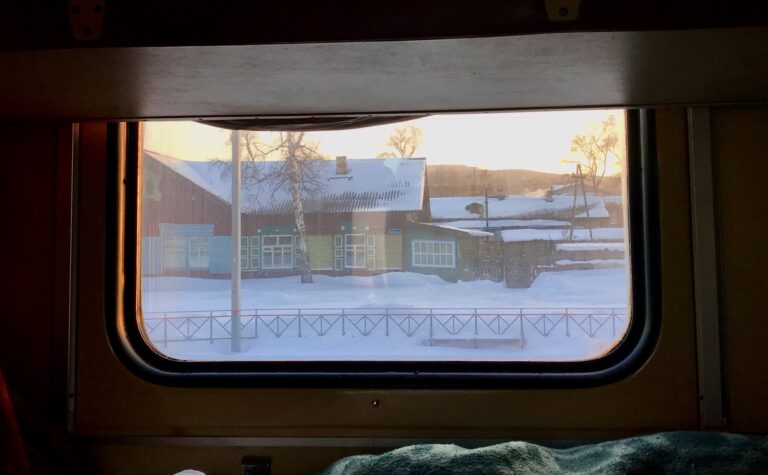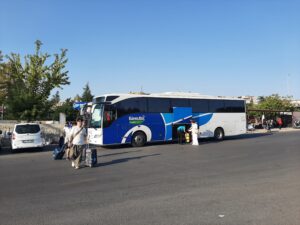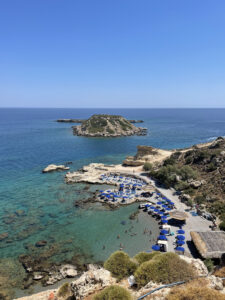If you want to travel around Turkey, you have several options at your disposal. The train network in Turkey is scenic, but unfortunately, quite limited, especially when you want to visit the Eastern part of the country. Flying domestically is an option, but may often require a layover in either Istanbul or Ankara, the two main flying hubs in the country. Riding your own wheels may give you the most freedom, but renting a car may quickly add to your budget, especially if you don’t plan on making a round trip. Fortunately, Turkey has an extensive and affordable long-distance bus network, connecting major hubs to smaller cities and everything in between. During our travels in Turkey, we took several long-distance bus trips in Turkey, and we’d like to share our experiences with you, so you can get on your well-prepared.
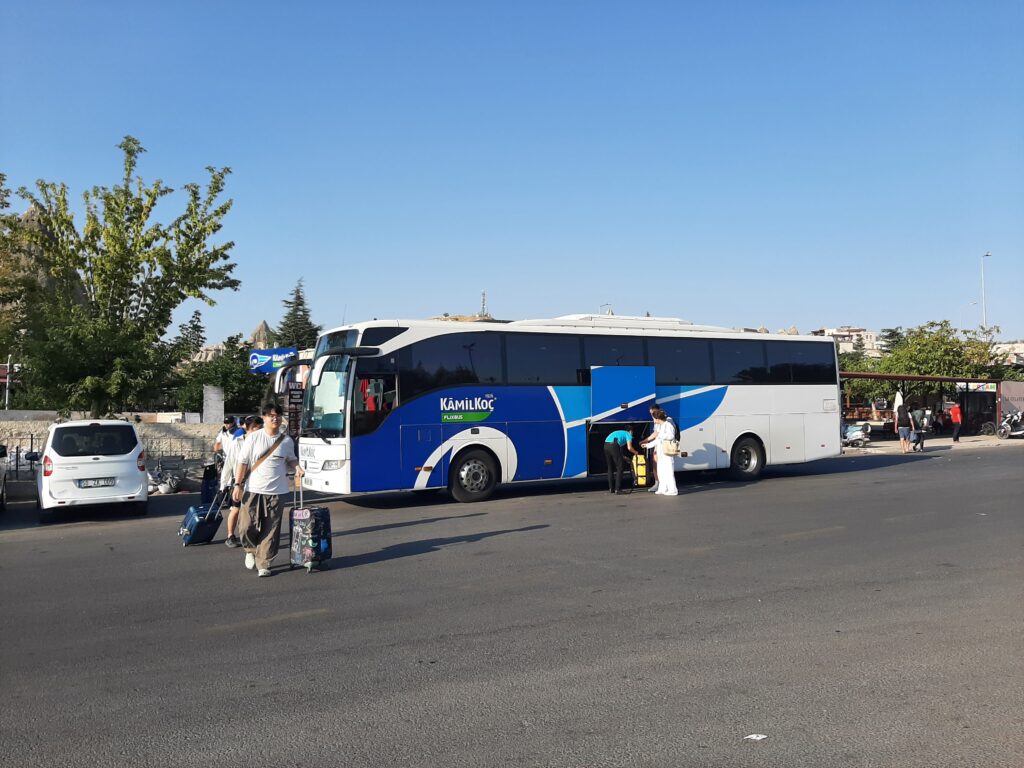
Where to buy tickets?
If you’ve travelled somewhere in, or around Europe, you must be familiar with Flixbus. Flixbus aquired Turkish bus operator Kâmil Koç in 2019, and has been operating many long-distance routes since. You can easily find routes and book tickets through the Flixbus official website, global.flixbus.com.
However, Flixbus/Kâmil Koç is but one of many companies operating bus routes in Turkey. To expand your options, we recommend to use Obilet.com. Using Obilet, we booked tickets from Göreme to Kayseri with a company called “Isparta Petrol Turizm”, and from Trabzon to Batumi (Georgia) with “Lüks Karadeniz”. Both routes were not offered by Flixbus.
Obilet’s website is available in many different languages, and allows you to display prices in several different currencies. We even found prices for Flixbus routes to be slightly cheaper on Obilet than they were on the official Flixbus website, and in addition Obilet does not charge the EUR 0.99 processing fee that the Flixbus website charges. Another nice perk of Obilet’s website is that it indicates on what side the sun will be for the most of your trip. Quite convenient if you’re trying to get some “quality” sleep.
We urge you to be extra cautious when entering your credit/debit card details on unknown websites. Use a VPN when using an unprotected or unfamiliar Wi-Fi connection; we highly recommend Proton VPN, it’s free, open source, and doesn’t sell your data. Use a payment platform like Wise, which allows you to easily block/unblock online transactions on your card, or Revolut, which offers unlimited digital single-use cards. Note: these are our personal recommendations, and we do NOT get sponsored by any of these companies.
What are busses like?
When booking tickets, you’ll see that most busses have a 2+1 configuration, meaning that seats are quite spacious. Seats do recline, but to a limited extent only. Seats to avoid are the ones directly next to the two entrances (front and middle), as they lack leg space, or don’t allow your seat to recline. All buses are “non-smoking”, with the exception that both bus drivers and conductors are generally of the category “chain smokers”, and don’t have patience to wait for the next stop. E.g. sit further back in the bus for a more or less “non-smoking” experience. Working air conditioning seems to be the standard. It’s not a luxury, it’s a necessity, as you’ll find out when the engine is turned of during one of the longer stops. To get at least some sleep, bring an eye mask and ear plugs. Long sleeved pants and shirt are useful, as it may become a bit frigid if the aircon is set to “freezing”. For the same reason, we were happy we had inflatable neck pillows and buffs.
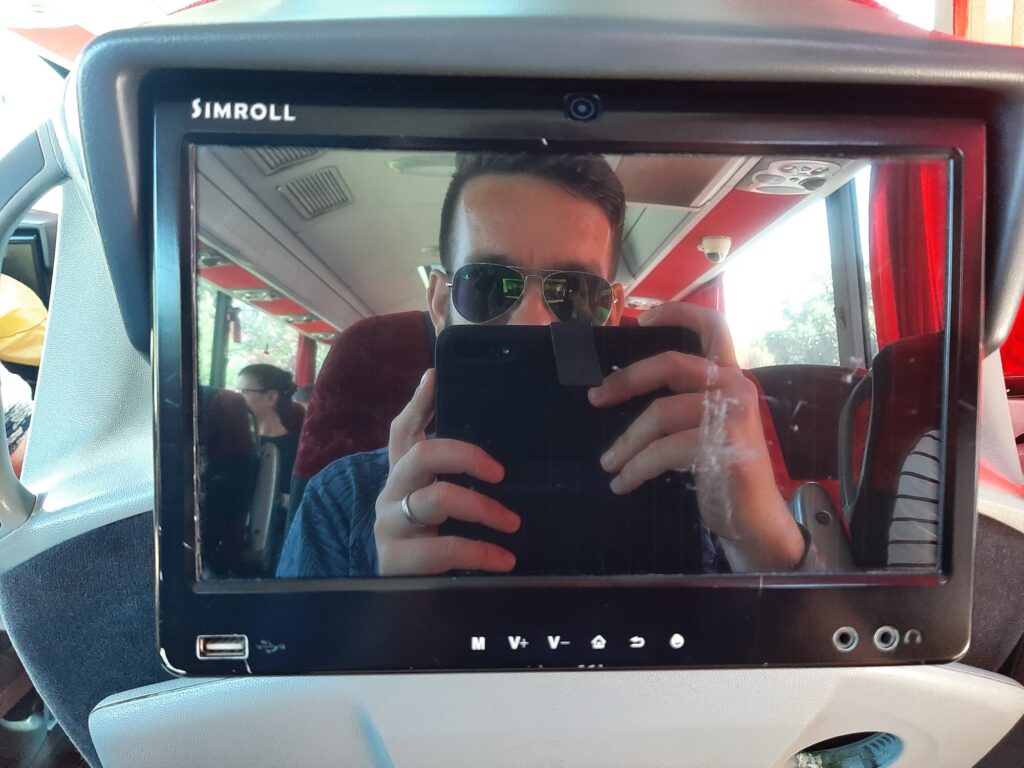
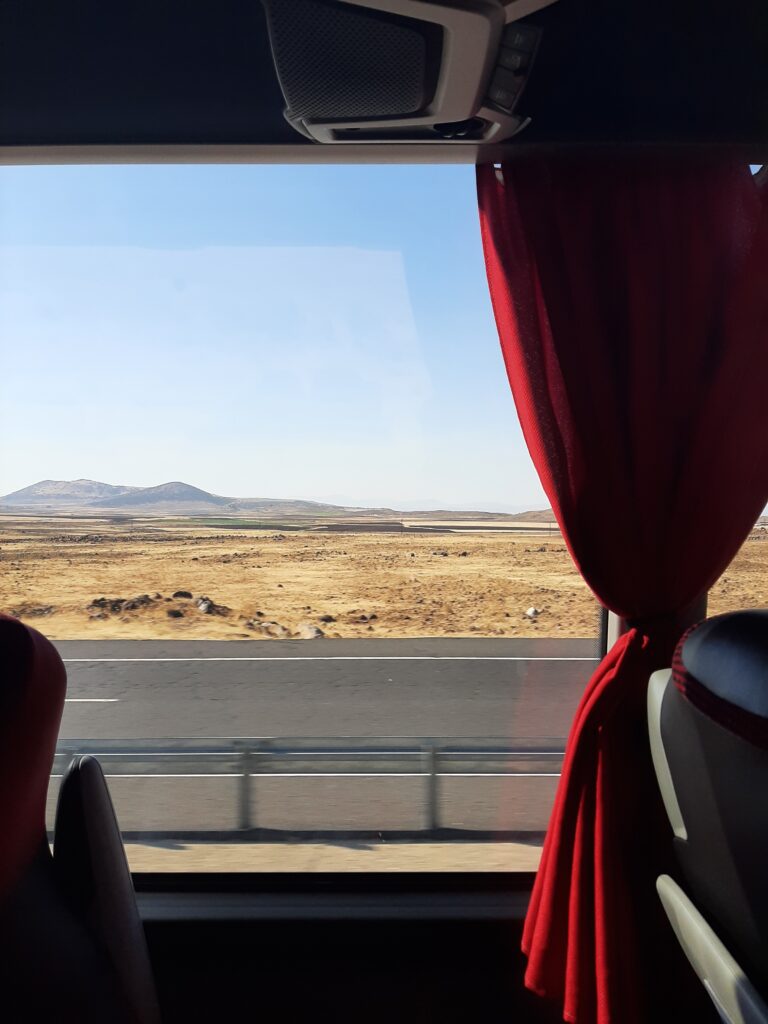
All busses we took had working charging ports, either USB, or good old-fashioned power sockets. On the 2+1 configuration, the single seats on the left may or may not have charging ports, the double seats generally do. One hassle we faced was that – even when advertised otherwise – busses generally lack working Wi-Fi. And yes, that included Flixbus/Kâmil Koç. So, make sure to download your favorite series and movies beforehand. We never had a working TV screen, if at all present.
The conductors are quite good with solving most issues. Someone occupying your window seat? They got your back. You thirsty? Here’s a box-shaped water cartridge. Some out-of-town dipsh*t to poor to buy air pods to watch Sh*t Tok? He’ll tell ‘m right off. In need of a toilet? Tough luck.. see next section.
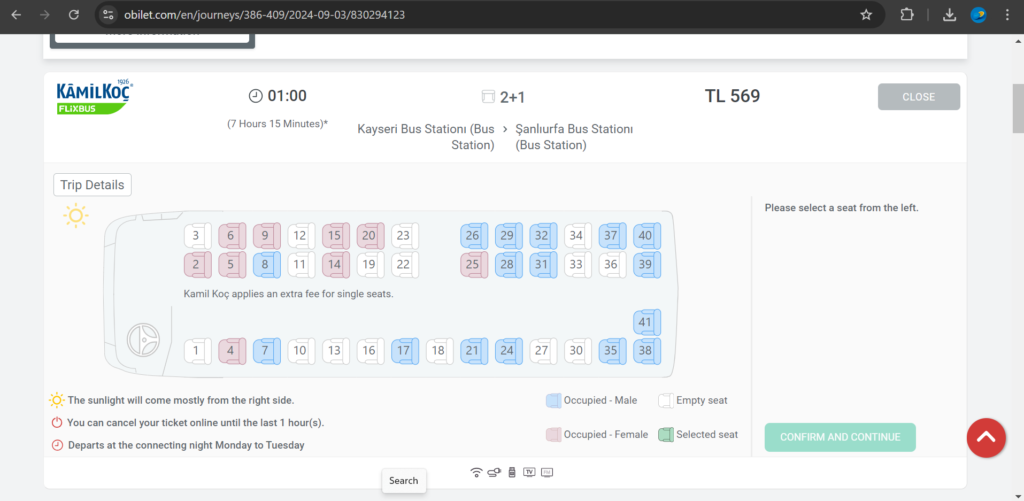
Toilets, or “lack thereof”
By far the largest issue you will face is that all buses notoriously lack on-board toilets. In addition, stops are few and far between. The “10 min stop time” at “bus stop city X” as indicated on the travel itinerary you were shown when you booked your tickets, may actually mean “just enough time to kick out two passengers and their luggage; bus coming to a full stop is optional”. The one exception here is for the longer stops (30 min +) at the so-called “rest stations”, which are out-of-town stops with a restaurant, shops and toilet facilities. Here, the bus does tend to stay for an extended period, even when running with a sizeable delay. Our tip is to tell the conductor well in advance that you have to use the toilet, and to be adamant.
When the bus does stop, use the toilet regardless of your current needs. When we took the bus in Turkey, toilets cost somewhere between 5 to 15 TRL, any number in between possible, so bring small change. Around prayer time, women may or may not be let through for free. The height of the fee has absolutely zero correlation with cleanliness or type of facilities. Be happy if you find a Western-style toilet, or know how to use a squatter (empty your pockets before you go!). Toilet paper may or may not be present; the gate-keeper may be able to give you some, five sheets at a time. E.g. be smart and bring your own.
Food, snacks and drinks,
Generally, the conductor / attendant will come by a few times during your trip with free refreshments and snack packets. You can ask for water, or – just like the locals do – simply grab a “cube” from the fridge yourself. However, as per the previous section, make sure you balance the fine line between “holding off on liquids” and “dehydration”. For proper hot meals, or to stock up on other snacks use the restaurants or shops at the so-called “rest stations”. For whatever snack you bring, be ready to share with your neighbors: it’s a Turkish custom!
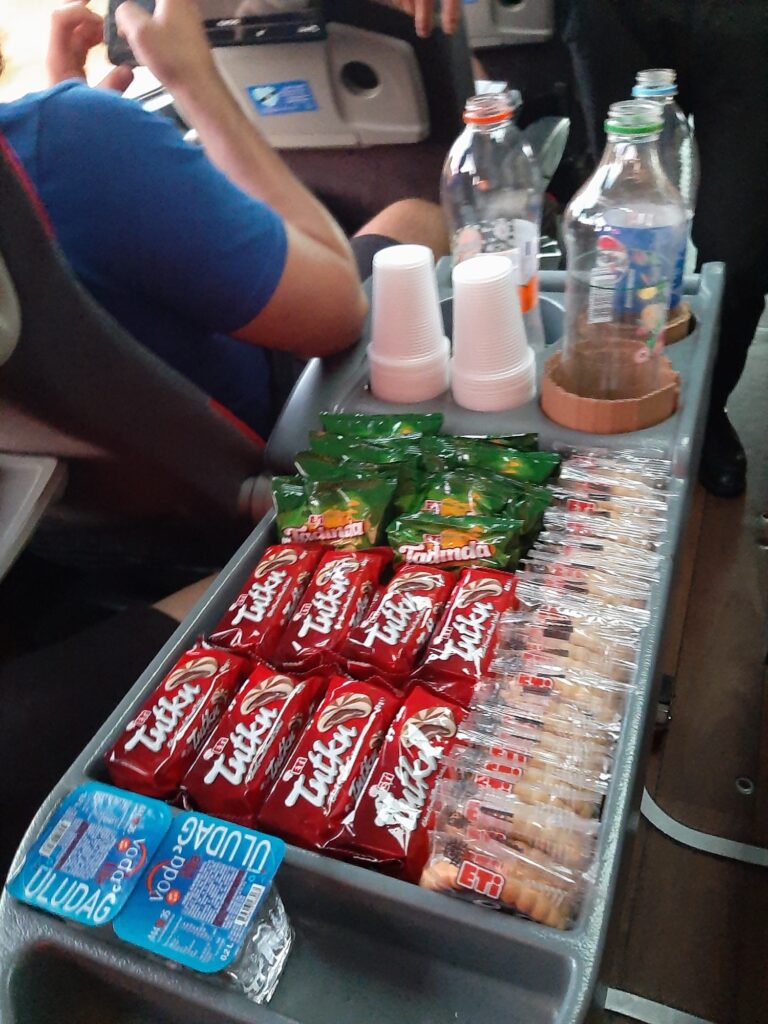
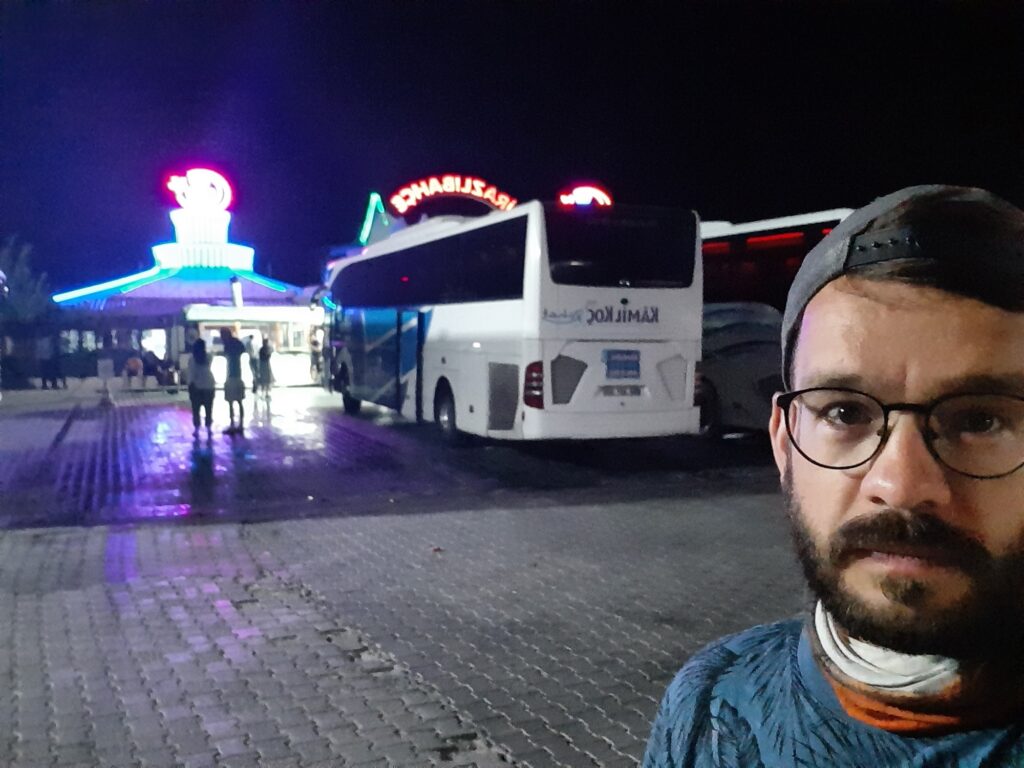
Timeliness
We found that generally, busses run reasonably on time. When they don’t, they tend to make up for lost time along the way, possibly at the expense of aforementioned toilet breaks. The one exception here was our trip from Trabzon to Batumi. Our Luks Karadeniz bus arrived two hours late, dumped us at the Sarp border station to be picked up by a Georgian minivan at the other side of the border, rather than driving us all the way to Batumi. We arrived at our destination at 5 PM, rather than the advertised 11 AM. Meh, it all worked out in the end, and we made some friends along the way.
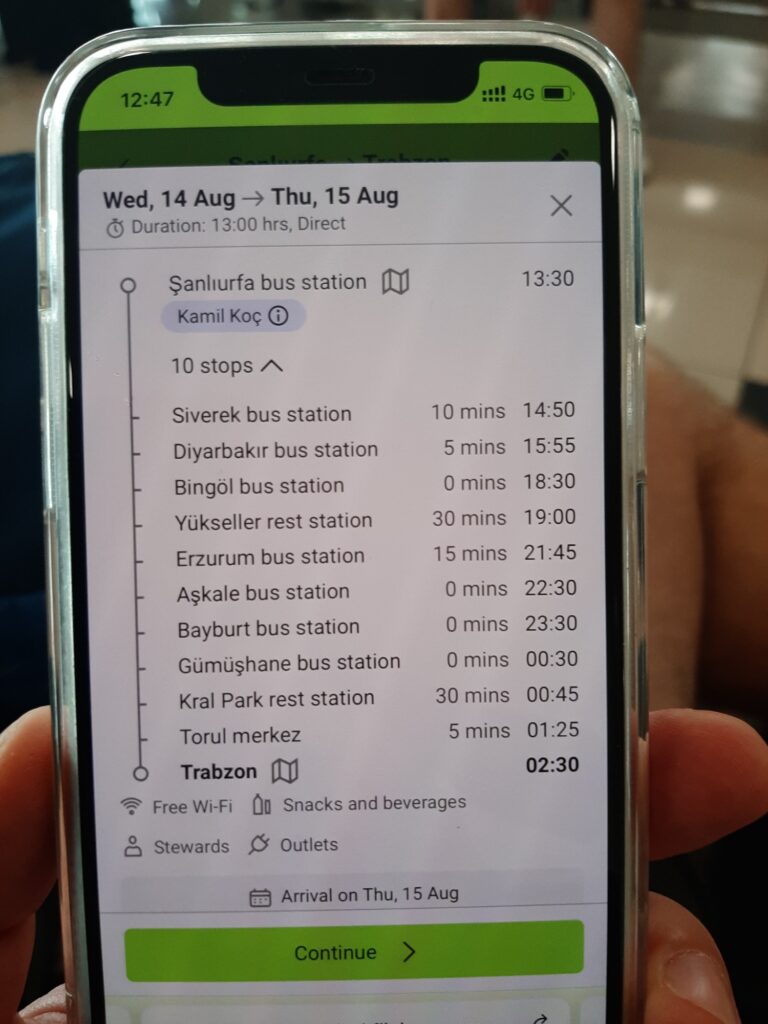
Other things to consider,
- If you’re a female solo traveller, note that there’s a rule (?) that allows a maximum of six women to be seated alone on the bus. This rule seems to be applied equally across all bus operators. Websites like Obilet.com will tell you if this is an issue while you are booking.
- Don’t be startled when the bus is stopped by the military police (“gendarma”) somewhere along your trip, this is standard procedure. Our bus got checked on all three of our 8+ hour bus trips. The gendarma may use dogs to sniff the hold, and they will come inside the bus (without dog) to check your ID. Turkish ID’s get scanned with a tablet computer; our European ID’s were just quickly glanced over. The whole procedure will just add 15-20 minutes to your trip.
- To follow your trip without having to use internet, use the Maps.me app and download the relevant map sections for offline use prior to your trip. The offline maps in Maps.me have a search function, and allow you to add book marks, comments etc without ever having to (re)connect to the internet. Maps.me is also great for hikes in Turkey, as it shows a lot more trails than f.i. Google or Apple Maps do.
